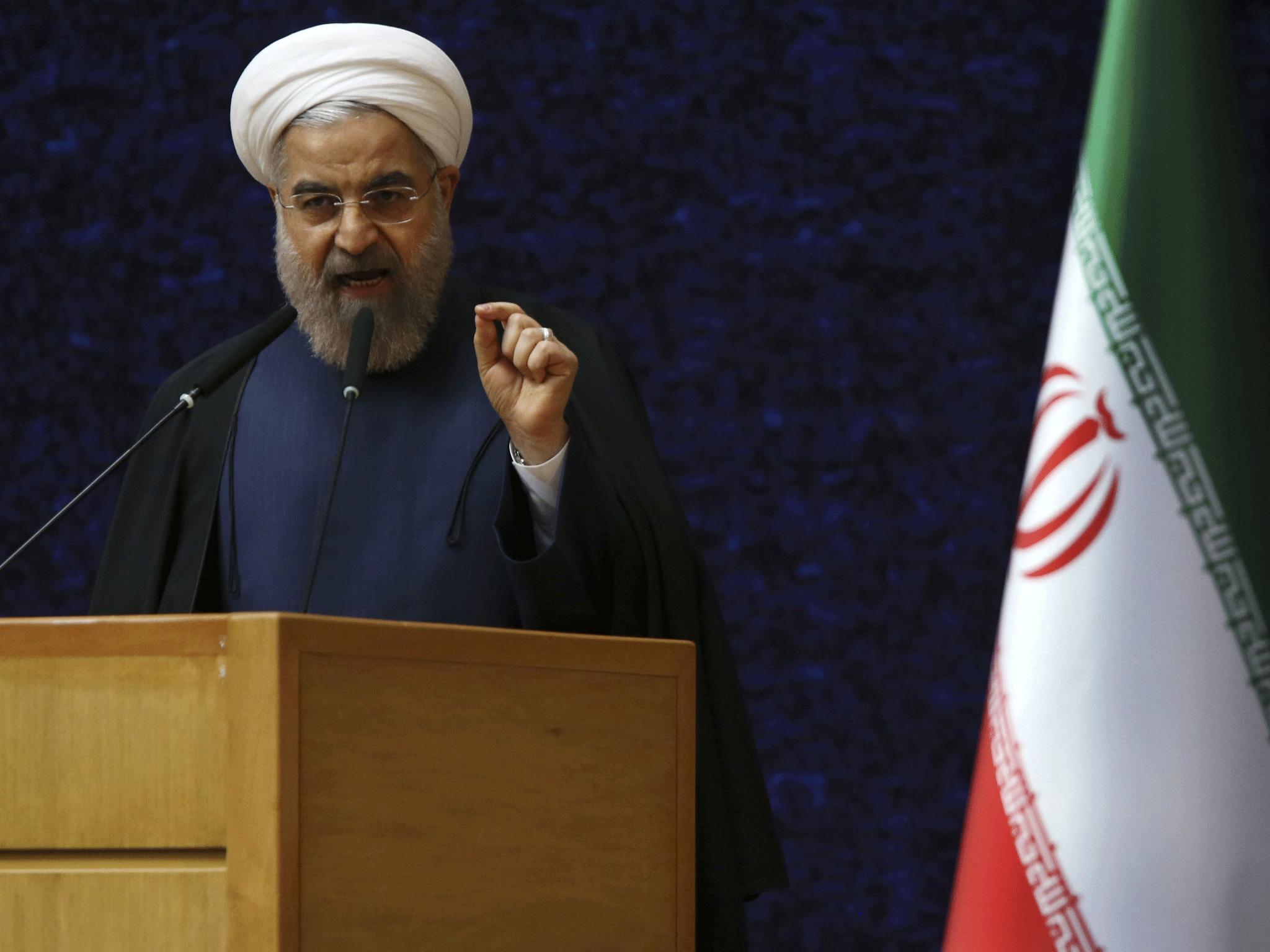Iran nuclear deal: President Hassan Rouhani warns Tehran will not sign final deal unless economic sanctions are lifted
Framework deal signed with six world powers aims to curb Iran's bomb-capable technology

Your support helps us to tell the story
From reproductive rights to climate change to Big Tech, The Independent is on the ground when the story is developing. Whether it's investigating the financials of Elon Musk's pro-Trump PAC or producing our latest documentary, 'The A Word', which shines a light on the American women fighting for reproductive rights, we know how important it is to parse out the facts from the messaging.
At such a critical moment in US history, we need reporters on the ground. Your donation allows us to keep sending journalists to speak to both sides of the story.
The Independent is trusted by Americans across the entire political spectrum. And unlike many other quality news outlets, we choose not to lock Americans out of our reporting and analysis with paywalls. We believe quality journalism should be available to everyone, paid for by those who can afford it.
Your support makes all the difference.Iran will not sign a final nuclear deal unless economic sanctions imposed over its controversial atomic programme are lifted, President Hassan Rouhani has warned.
Iran reached a framework agreement with six world powers last week, aimed at restricting Tehran's ability to develop nuclear weapons.
Speaking at a ceremony to mark Iran's nuclear technology day however, Mr Rouhani said once the deal is implemented “all economic sanctions must be lifted immediately”.
The deal, due to be finalised by the end of June, aims to curb Iran's bomb-capable technology, while at the same time allowing Tehran quick access to bank accounts, oil markets and financial assets blocked by international sanctions.
The framework deal however does not include immediate lifting of punitive sanctions imposed on Iran.
It says sanctions will be suspended once it can be verified by international monitors that Tehran is abiding by the agreement.
It also says sanctions would return if Iran fails to fulfil its commitments at any time.
Mr Rouhani's comments however may indicate new demands by the Iranian negotiating team, it has been reported.
“We will not sign any agreement unless all economic sanctions are totally lifted on the first day of the implementation of the deal,” the Iranian president said.
While the framework has received major endorsement by the Iranian establishment, hard-liners have described the deal as a “defeat” for Iran.
Mr Rouhani said the framework deal was evidence Iran has “not surrendered to a policy of pressure, sanctions and bullying”.
“This is our victory,” said Mr Rouhani.
It has long been feared in the West that Iran's nuclear programme could allow it to build an atomic bomb, although Iran denies this and says its programme is for peaceful purposes, such as generating power and cancer treatment.
The deal has come under criticism from some, with Israeli Prime Minister Benjamin Netanyahu urging Washington to seek a better deal, saying on Sunday he would press the US not to give Tehran “a free path to the bomb”.
Elsewhere, US senator Tim Cotton said in a radio interview on Tuesday that eliminating Iran's nuclear facilities with airstrikes would only take the US 'several days'.
Mr Cotton, the Republican senator from Arkansas, accused President Obama of brandishing a “false choice' between war and his announced deal on Iran's nuclear programme.
Iran's Supreme Leader Ayatollah Ali Khamenei, who has the final say on state matters, said – in comments published on his official website – that he “is neither for nor against” the deal.
He added that there “is no binding” agreement yet.
Additional reporting by PA
Join our commenting forum
Join thought-provoking conversations, follow other Independent readers and see their replies
Comments